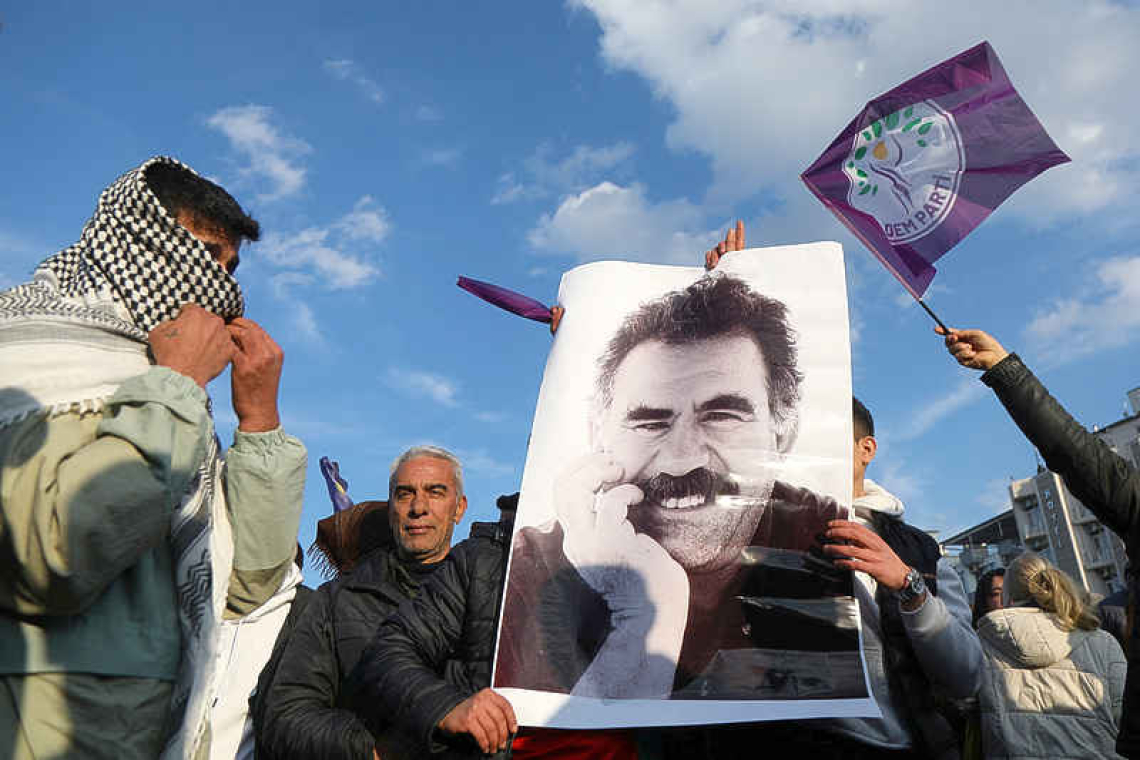ISTANBUL--Turkey's jailed militant leader Abdullah Ocalan called on his Kurdistan Workers Party (PKK) to disarm and disband on Thursday, a move that could end its 40-year conflict with Ankara and have far-reaching political and security consequences for the region.
If the PKK leadership heeds its founder's call to lay down its arms, which is not guaranteed, President Tayyip Erdogan would gain a historic opportunity to pacify and develop southeastern Turkey, where violence has killed thousands of people and devastated the regional economy.
Meanwhile, Ocalan himself, now 75, could see his dream of peace during his life time realised after having been imprisoned on an island near Istanbul in near-total isolation since 1999.In neighbouring Syria, the new administration could assert greater control over its Kurdish north as it seeks to rebuild a nation fractured by civil war, while peace would also remove a constant flashpoint in Kurdish-run, oil-rich northern Iraq, where the PKK set up its base two decades ago.
"I am making a call for the laying down of arms, and I take on the historical responsibility of this call," Ocalan said in a letter made public by Turkey's pro-Kurdish DEM Party members.
Ocalan wants his party to hold a congress and to formally agree to dissolve itself, they quoted him as saying.A DEM delegation visited Ocalan on Thursday in the prison on Imrali island and later delivered his message in nearby Istanbul, a photo of them together with Ocalan projected onto the wall behind them.
There was no immediate response from the PKK headquarters in the mountains of northern Iraq, while Kurdish-led forces in Syria said Ocalan's message was "positive".
In the first reaction to Ocalan's appeal from Erdogan's ruling AK Party, its deputy chairman Efkan Ala said Turkey would be "free of its shackles" if the PKK truly laid down its arms.The group is deemed a terrorist organisation by Turkey and its Western allies.
More than 40,000 people have been killed since the PKK launched its armed campaign in 1984 for an ethnic Kurdish homeland in southeastern Turkey. It has since moved away from its separatist goals and instead sought more autonomy for southeast Turkey and greater Kurdish rights.
Devlet Bahceli, a Turkish ultra-nationalist leader and close political ally of Erdogan,proposed in October that Ocalan order his fighters to end their armed struggle - a decade after a previous Turkey-PKK peace process collapsed. Bahceli suggested that Ocalan might be released if he made such a call.
In his message on Thursday, Ocalan said the armed struggle had "run its course", though he also urged Turkey to show respect for ethnic minorities, freedom of expression and the right to democratic self-organisation.The pro-Kurdish political movement, the target of a years-long judicial crackdown, will hope Ocalan's move helps usher in democratic reforms and cultural and language rights in Turkey.
For Ankara, a peace deal would relieve a burden on its security forces, ease social tensions and boost the mainly Kurdish southeast's under-developed economy. It would also be a major coup for Erdogan, who has taken some steps during his two decades in power to resolve the issue.
The PKK insurgency largely centered on the southeast but also involved deadly attacks in Istanbul and other Turkish cities. Most of those killed in the conflict were PKK militants.







